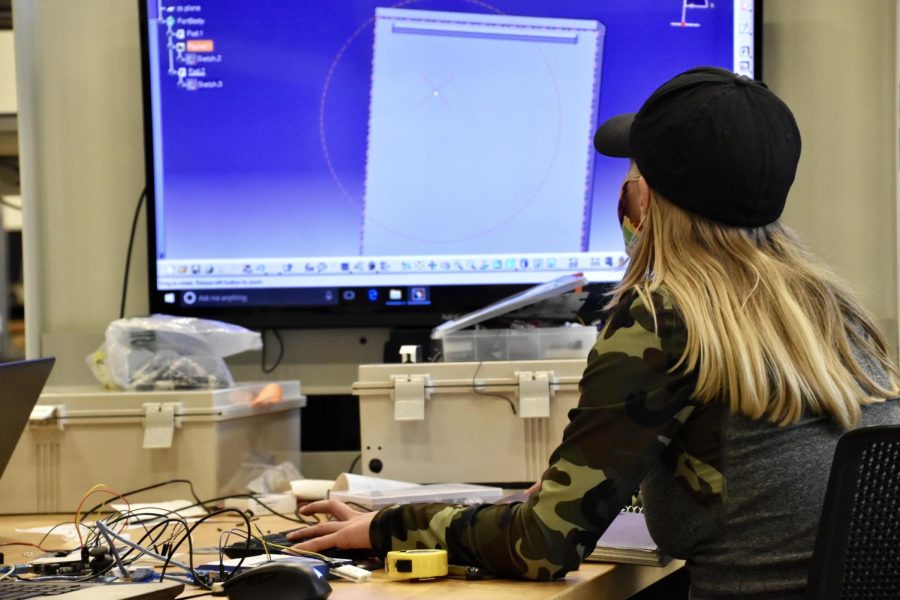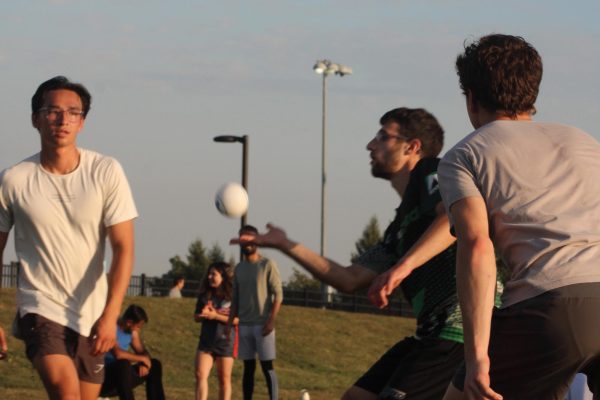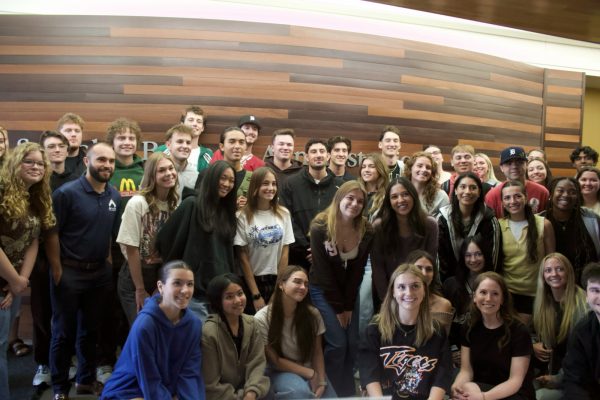WISER to host ‘Picture a Scientist’ screening Nov. 5
Abbie Winkel (pictured) is a senior in mechanical engineering at OU. She is working on her senior project on solar EKIT design which will be integrated into hospital and farm equipment.
Anyone wishing to learn more about the struggles and journeys of women in science, engineering and research should make their way to Founders Ballroom C in the Oakland Center on Nov. 5 for a screening of the film “Picture a Scientist.”
This screening is being hosted by the Oakland University WISER — Women in Science, Engineering and Research — organization from 1-3 p.m. Following the film, a discussion panel will run from 3-4 p.m. featuring: Executive Vice President for Academic Affairs and Provost Britt Rios-Ellis, Ph.D.; Associate Professor of Biological Sciences and Interim Associate Provost Amy Banes-Berceli, Ph.D.; Professor of Psychology Martha Escobar, Ph.D.; and Associate Professor of Biological Sciences and Bioengineering Sara Blumer-Schuette, Ph.D.
The panel’s participants are set to discuss the film’s relevance to the WISER organizations outreach initiatives, and the meshing of WISER’s broader goals with OU’s academic environment. A point of particular discussion for the panel, will be how the film directly examines the challenges that women have and continue to face in the academic realm.
“The documentary ‘Picture a Scientist’ shows the unique challenges that face women in STEM,” said Leanne Papke, program coordinator for OU’s research office. “Recently, it’s been part of a national conversation about these issues. It’s been shown at other universities, so we wanted to bring the film to Oakland University to give people the chance to see the film and talk about what the experiences of women in STEM are like.”
Gender discrimination practices in higher education, science, engineering and research is a complex and nuanced issue. According to an UNESCO report, gender inequality in higher education in general remains a universal issue — while women made up 53% of graduates with Bachelor’s and Master’s degrees in 2014, only 44% of doctoral graduates are women and 30% of the world’s university researchers are women. The report recommends that higher education institutions “undertake to be the platform for increased female leadership.”
“Since the beginning of the [WISER] program, we’ve done networking events and workshops to help women meet their colleagues and address issues that are part of their careers as professors,” Papke said.
The film screening will have both virtual and in-person attendance options — although an RSVP is required — with the discussion panel being conducted virtually via live-stream, and the film shown with a streaming link supplied upon RSVP. This event serves as one of the many community and faculty outreach programs that WISER has conducted, and its purpose is to continue facilitating discussion about the experiences of women in the STEM field.
“One of the most famous cases of gender discrimination in the sciences was of how Rosalind Franklin’s contribution to the discovery of the structure of DNA was downplayed for decades,” said Dr. Blumer-Schuette.
“What makes ‘Picture a Scientist’ so powerful is how this documentary illustrates how gender discrimination in academia is still an ongoing issue, and that women from underrepresented ethnic or racial groups are simultaneously navigating multiple layers of discrimination,” Dr. Blumer-Schuette said. “The scientist’s stories in this documentary also highlight how forms of gender discrimination can vary from obvious violence to subtler actions.”






